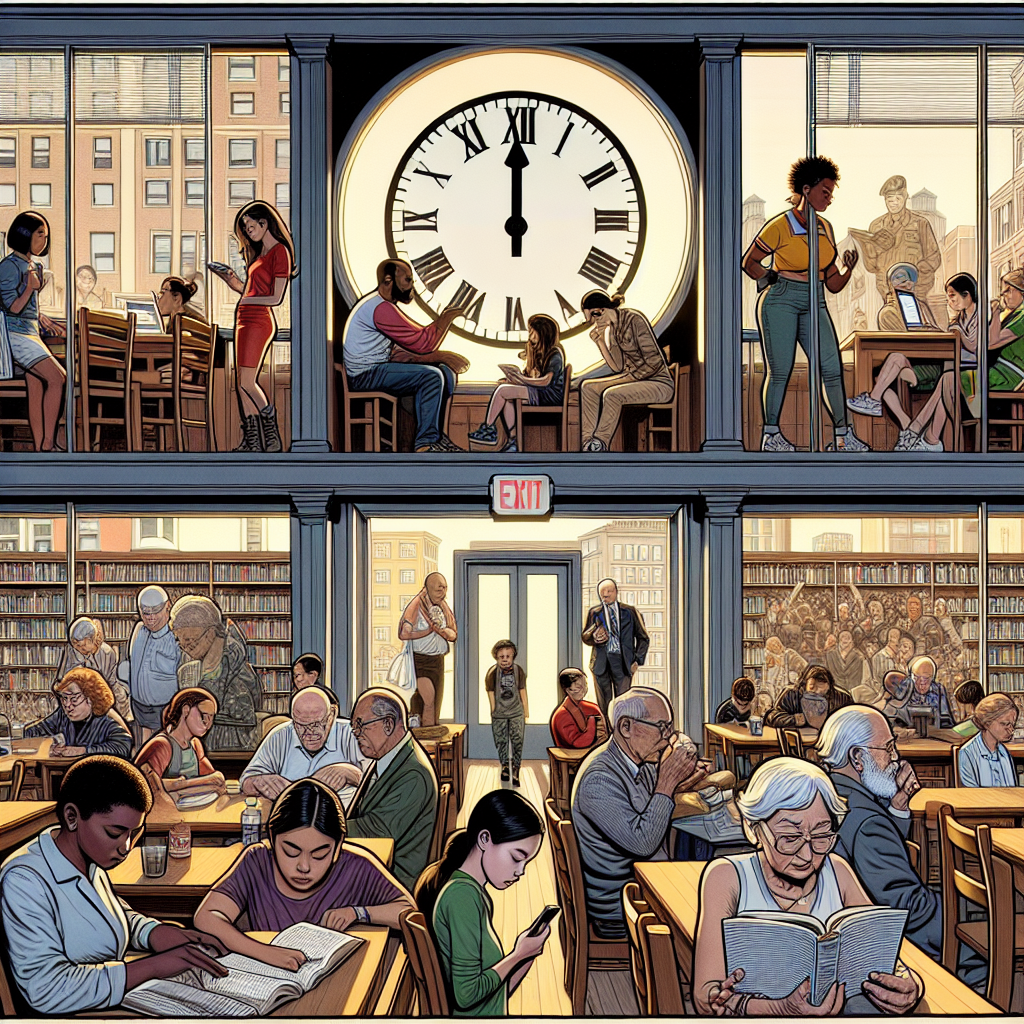**"Quiet Hours, Loud Debates: Navigating Freedom and Silence in Chesterburgh’s Public Library"**

"He who has a why to live can bear almost any how." – Friedrich Nietzsche
It is with a ponderous yet peculiarly curious mind that I, Beatrix Hefflin, turn my attention to Chesterburgh’s newest sociocultural artifact: the contentious inception of the “Quiet Hours” initiative in our public library. At first blush, one might quickly dismiss such an edict—an attempt to mandate silence during designated time blocks for the benefit of studious solitude—as an unremarkable local ordinance in the pantheon of small-town governance. Yet, upon a more erudite examination, the measure reveals itself as a microcosmic battleground reflecting larger epistemological and ethical questions about communal space, the dialectics of noise and silence, and, indeed, the very nature of public obligations.
To contextualize, the Chesterburgh Public Library, a bastion of intellectual refuge since its establishment in 1903, has historically accommodated a diverse spectrum of patrons: from the diligent high schooler cramming for Advanced Placement examinations to retired veterans seeking solace from the cacophony of daily existence. Yet, in recent weeks, the library board—under pressure from an increasingly vocal contingent of users unhappy with what they cite as “disruptions” caused by conversations, mobile device usage, and occasional laughter—enacted a new policy that designates two-hour intervals each weekday as “Quiet Hours.” During these periods, audible communication is expressly prohibited save for urgent whispers, mobile devices must be silenced, and staff are instructed to enforce compliance with a new level of vigilance.
On the surface, it stands as a seemingly pragmatic solution: carve sacred temporal space within which the library transforms from a communal agora into a sanctified sanctuary of silent reflection. Yet the repercussions ripple beyond mere volume control. In conversations with local residents, a schism emerges—one punctuated by the perennial tension between individual liberty and collective responsibility that so often defines civic engagement in our town’s microcosm.
Take, for instance, Genesis McAllister, an undergraduate at Chesterburgh University whose scholarship depends heavily on collaborative dialogue. To her, the sanctity of “Quiet Hours” seems antithetical to the library’s role as a democratic space for the exchange of ideas. In her words, “Learning isn’t a solitary endeavor for many of us; discussion catalyzes comprehension. This policy risks alienating individuals who rely on study groups, effectively privatizing what should be an accessible commons.” Here, the ethical quandary crystallizes: should public spaces cater to the ascetic solitary scholar or facilitate the polyphonic chorus of communal inquiry?
Conversely, there are advocates like Mr. Leonard Briggs, a retired literature professor with a disposition attuned to quietude, who praises the initiative as “long overdue.” For him, the boundary between contemplative silence and cacophonous disruption is not merely a matter of decibel levels but a philosophical demarcation of respect. He argues, “The library must foster an environment conducive to concentration, an indispensable condition for deep intellectual engagement. The ‘Quiet Hours’ facilitate this by erecting a temporal boundary that enforces a necessary solemnity.” Mr. Briggs’s stance, though seemingly conservative, invites us to ask: what is the ontology of concentration when bedeviled by the social textures of a bustling public space?
The library board’s rationale rests heavily on empirical feedback gleaned from recent surveys, which report a 62% preference for more stringent noise regulation. However, the demographic parsing of these data reveals a rather
